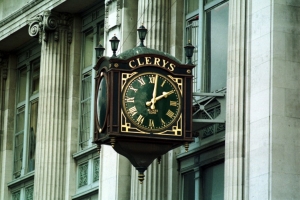 There have been calls for An Bord Pleanála to examine a €1.5 million council levy exemption granted to developer consortium Natrium, at the planning appeals hearing of the controversial Clery’s development which begins tomorrow (Monday).
There have been calls for An Bord Pleanála to examine a €1.5 million council levy exemption granted to developer consortium Natrium, at the planning appeals hearing of the controversial Clery’s development which begins tomorrow (Monday).
Workers’ Party councillor Éilis Ryan, who will address the appeal hearing tomorrow, will ask why the controversial development has been allowed to avoid paying up to €1.5 million.
Cllr. Ryan said:
I will be providing evidence at the An Bord Pleanála hearing in Dublin on Monday regarding the negative impact which the development has had and will have on economic opportunities for communities working and living in the Northeast Inner City.
Among the key issues I will be raising at the hearing is why this development has been exempted from paying up to €1.5 million in development levies that should go toward providing services for the people of Dublin. The planning documents mention that the developer has committed to doing a degree of upgrading works in the O’Connell Street area in exchange for this . However, there is no specifications of the cost of these proposed works, this is not in line with development policy and there is no real justification for the granting of what amounts to a massive tax break to this development.
Cllr Ryan continued:
I find it incredible that this situation has occurred alongside what I believe to be several other material contraventions by this proposed development of the City Development Plan and Scheme of Special Planning Control for O’Connell Street and Environs 2016.
Central to these is the fact that the development, if it had been allowed to go ahead, would have turned employment on the site from 100% retail to over 60% office. This is despite the O’Connell Street area being a strictly retail zone.
Cllr. Ryan concluded:
These contraventions highlight the continued intention of Natrium to pursue profit at the Clery’s site over and above the need for decent jobs and investment in the Northeast Inner City. It makes no sense for the council to grant an exemption based on trust to a developer which has shown such blatant disregard for the public good to date.
